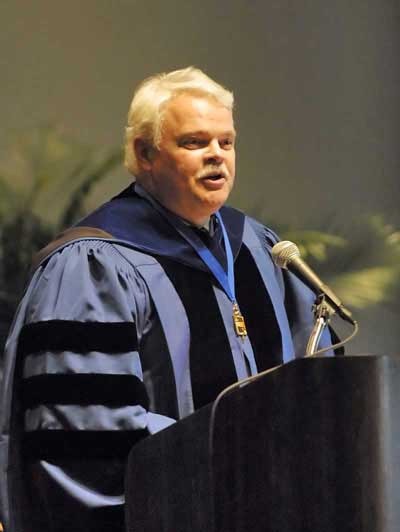On Monday, April 7 Gustavus Adolphus College celebrates a prestigious academic milestone — its 25th anniversary of the Phi Beta Kappa, Eta chapter.
On April 7, 1983 Gustavus joined the prestigious Phi Beta Kappa honor society by inducting its first members. Gustavus is one of only about 300 institutions (out of a possible 5,000) in the country to hold such a distinction.
The following free, public activities are planned to commemorate the anniversary of the Gustavus Eta chapter on April 7, 2008:
-A 10:00-10:20 a.m. talk in Christ Chapel featuring philosopher John Churchill. Churchill is Secretary of the Phi Beta Kappa Society, based in Washington, D.C.
-A 3:30-5 p.m. lecture by Churchill in the Heritage Room in the C. Charles Jackson Campus Center.
Phi Beta Kappa began during colonial times, in 1776, when its members secretly met to discuss revolution against the British throne. It was the first Greek society founded in the United States and today remains the most prestigious of scholarly organizations.
The application process for a chapter charter is long and tedious. The national board looks at a college’s ratio of Ph.D. faculty members, test scores, endowment, the number of books in the library, and more. A team then comes to campus to visit the library, meet with faculty, and decide whether or not to recommend chapter status. Gustavus applied five times before it was recommended for a chapter.
Phi Beta Kappa celebrates and advocates excellence in the liberal arts and sciences. Its campus chapters invite for induction the most outstanding arts and sciences students at America’s leading colleges and universities. The Society sponsors activities to advance these studies — the humanities, the social sciences, and the natural sciences — in higher education and in society at large.

Leave a Reply
You must be logged in to post a comment.